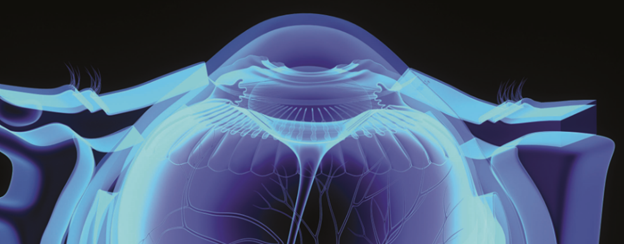
|
Co-Directors Reza Dana, MD, MSc, MPH Ula V. Jurkunas, MD |
Members See a list of Cornea COE faculty |
The Cornea Center of Excellence brings together one of the world’s largest group of scientists and physicians to advance our understanding of corneal biology, develop treatments for corneal conditions, and improve access to sight-saving treatments. They developed the Boston keratoprosthesis—the most widely used artificial corneal transplant in the world—and have improved our understanding and management of corneal transplantation rejection, viral corneal disease, dry eye disease, stem cell-based therapies, regenerative approaches to corneal diseases, novel drug therapies for corneal neovascularization, and innovative imaging of the ocular surface.
The cornea is the eye's most powerful structure for focusing light. It also protects the rest of the eye from injuries and microbial pathogens. However, the cornea itself is susceptible to infections, inflammation, injuries, and genetic conditions that can disrupt corneal function and cause vision loss.
According to the World Health Organization, corneal blindness is one of the leading causes of vision loss worldwide, and alleviating this global burden is dependent not only on elucidating disease mechanisms and improving therapeutic approaches, but also on increasing access to ophthalmic care.
Major Research Breakthroughs
In the last 20 years, our faculty have spearheaded many new innovations and advances in the field. Notably, they have:
- Identified molecular clues, including the role of oxidative stress, in the pathogenesis of Fuchs’ endothelial corneal dystrophy
- Identified the molecular and cellular immune basis of dry eye disease, including the role of interleukin-17
- Developed and optimized drug-eluting contact lenses
- Developed the “Lucia,” a novel corneal prosthesis, to help combat global corneal blindness
- Received FDA approval for novel method of cultivating corneal stem cells for ocular surface reconstruction
2020 Vision: Promising Areas for Future Research
Investigators are working to further advance corneal regeneration by developing novel biomaterial and cell-based regenerative therapies as well as advance fields in corneal transplantation and cytoprotection.
Biennial Cornea Research Conference
The Biennial Cornea Conference, first occurring in 1962, is the premier global anterior segment of the eye research conference and is designed to be a platform for presenting the current basic and clinical research in the field of cornea and ocular surface. The two-day event draws top corneal researchers from around the globe.
